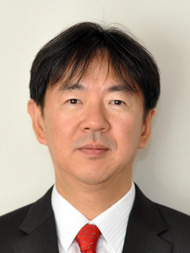
Electronics Society
Tetsuya Kawanishi
(Waseda University)
President of the IEICE Electronics Society
Tetsuya Kawanishi (Waseda University)
I have been a member of the Electronics Society for a quarter of a century, and at the time I joined, I never imagined myself in a position to take on such a role. My affiliations lasted the longest for 17 years, so in comparison, my association with the Institute of Electronics, Information and Communication Engineers is longer than them. Upon assuming the role of the president of this society, I have reflected on what the Institute of Electronics, Information and Communication Engineers and the Electronics Society have meant to me.
I am grateful for the numerous opportunities for encounters and research through the society. On the other hand, I have also had moments where I wished things could be better and expressed my frustrations. How about all of you? What impressions do you have? Perhaps it’s a mixture of love and hate.
I have come to realize that the society is like the air we breathe. Air is something we take for granted, something indispensable, and we can’t even imagine it disappearing. In fact, we might find ourselves complaining about the temperature or quality of the air. However, there is a significant difference between the society and the air. That is, the society is something we collectively create. In that sense, it feels more like a family than the air. I hope you can express your opinions, both with affection and with plenty of complaints. While my term as president is limited to one year, considering my capabilities, I am committed to contributing to the atmosphere that we all create together. With a perspective on what kind of society we should leave for future generations, we should be willing to make changes without being bound by past conventions. I encourage you to actively utilize the functions that the society currently possesses and provide feedback if there are any issues. How about we start discussing how to make the most of the present society and create a society for the next generation, who will shape the future?
